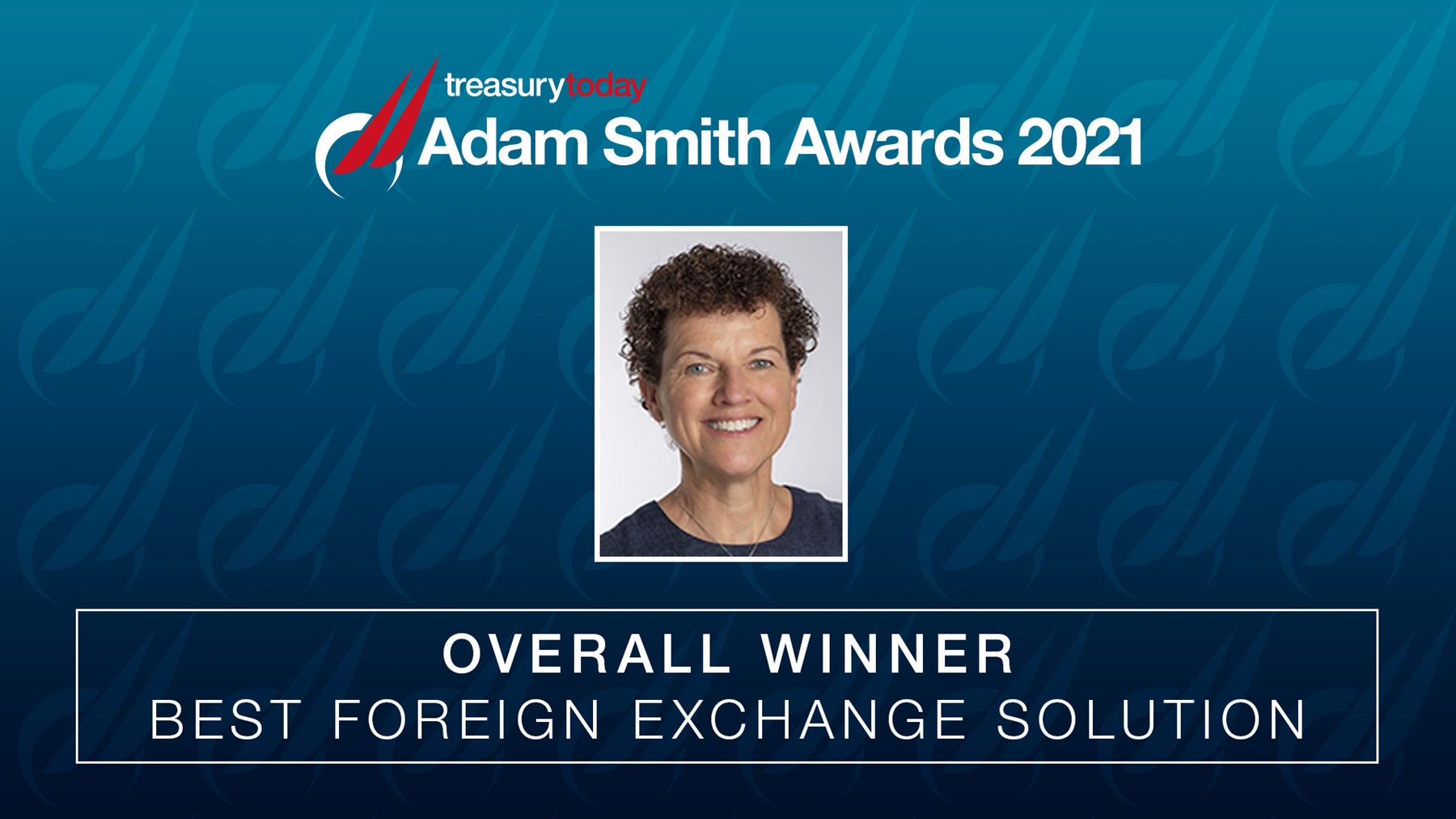
Photo of Lynda Heywood, Group Treasurer.
Lynda Heywood
Group Treasurer

Tesco is a FTSE 100 company headquartered in Welwyn Garden City, England.
Landmark FX hedging transaction delivers opportunistic result
The challenge
In early 2020, Tesco agreed to sell its businesses in Thailand and Malaysia to CP Group for US$10.6bn.
Between December 2019 and March 2020 Tesco and one of its major banks worked together to assess and solve the FX risk inherent in this large and complex transaction. This included the possibility that proceeds would be received in USD and/or THB where liquidity and market impact were major considerations.
The deal was subject to shareholder and competition approval, therefore Tesco wanted to balance several factors; hedging the risk, retaining flexibility to exit the hedge in the event the deal failed, minimising hedging costs and taking advantage of any favourable market moves.
The solution
The bank presented a range of vanilla and deal contingent (DC) hedging solutions to Tesco who finally decided to hedge the full US$10.6bn with 50% vanilla options and 50% DC forward. Once the initial strategy was implemented the team focused on the active management of the hedging as the deal and market evolved.
The vanilla option hedge allowed Tesco to participate in the depreciation in GBP/USD as the COVID-19 pandemic impacted FX markets.
Tesco was able to lock in the opportunity gain via a series of bespoke committed restructures. The initial premium was more than offset by the improvement in economics, meaning that Tesco could deliver more GBP proceeds and maximise shareholder value.
“Our teams worked closely to restructure the hedging as the deal lifecycle and FX market evolved. Initially the hedging was in the form of an FX option (50%) and deal contingent forward (50%). In May, the strike rate of the FX option was improved using a ‘committed restructure’ strategy as GBP/USD remained at historically low levels,” explains Lynda Heywood, Group Treasurer.
The Tesco team repeated this approach on five further occasions to attempt to improve the FX option strike rate.
As the August hedge maturity approached it became clear regulatory approval would be later in 2020 than initially expected. The FX option maturity therefore had to be extended, which was executed at an optimal point, resulting in Tesco achieving an improved strike rate.
Once deal certainty had been reached in October 2020, the FX option was converted to an FX forward. The remaining value in the FX option was embedded into the forward rate, enhancing the hedge further.
Best practice and innovation
The transaction demonstrates best practice as follows:
- Mitigating the risk to and maximising shareholder value by deploying a hedge strategy, giving a worst-case rate whilst also allowing significant participation in favourable market moves.
- Maximising value by rolling the remaining mark-to-market value of the FX option into the final FX forward.
Tesco also used a bespoke strategy that involved no upfront cost, to lock in favourable volatility and allow a new FX option to be executed if a certain, lower spot rate was observed.
Key benefits
- The outcome of the hedge meant Tesco received over £50m more in proceeds (inclusive of all hedging costs) compared to if the Group had converted the proceeds at the prevailing spot rate on completion.
- The hedging evolved throughout one of the most volatile periods seen for GBP/USD with the rate reaching a low not seen since 1987.
“This transaction was significant and unique in terms of complexity and size. Our very experienced team navigated arguably the most uncertain markets in recent times and delivered efficient risk management to protect shareholder value. The team was able to do so with the support of our bank and both sides collaborated to provide genuine thought-leadership, proactivity, innovation, and efficient execution throughout. The opportunistic improvement of the FX option strike rate added-value that more than offset the initial premium cost of the hedging, protecting us from any adverse FX market movements and the risk of deal failure, but ultimately, and most importantly, delivering increased value to our shareholders,” concludes Heywood.
The Adam Smith Awards is the industry benchmark for best practice and innovation in corporate treasury. The 2021 Awards attracted a record-breaking 309 nominations spanning 40 countries. To find out more please visit: https://treasurytoday.com/adam-smith-awards.